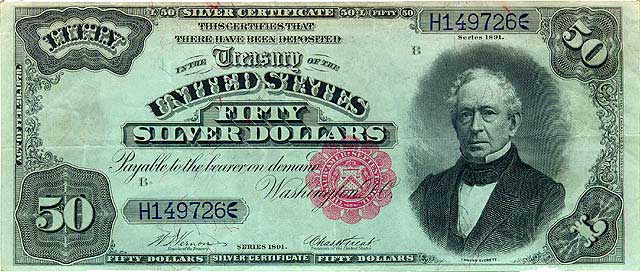|
American Economy Lacks Manufacturing
Can a country survive on the service industry alone?

By Charles Moffat - November 2007.
Maybe it could survive. If your economy was based entirely on tourism I could see the service industry basically supporting the entire town or island's economy. If it was a small town with a lot of pensioners it could work too, provided the value of their pensions wasn't constantly dropping.
But it certainly wouldn't thrive.
To have a thriving and growing economy you have to have a strong manufacturing base that is outputting quality goods in large quantities. In the case of the United States much of the economy in the past has been built on housing sales and the automotive industry.
But with the current mortgage crisis in the USA the housing market has gone into a major slump and is heading for a recession. Yesterday the US Federal Reserve cut their key lending rate by a .25% in order to stimulate the housing market by making mortgages slightly cheaper when the banking industry follows suit. But will it work? Is it too late?

When the mortgage industry goes down the housing industry pays attention. Less mortgages means less jobs for construction workers building houses. Layoffs means those workers can't go on vacation, buy a new truck, etc. which in turns hurts the automotive industry and the tourism industry. Depending on the length of the layoffs those workers might have to cut back on how much they spend on food, thus hurting the agricultural industry.
America's modern automotive industry is being hurt by two things: Unionized labour and cheaper imports from Asia. Why build cars in North America where unionized automotive wages are $20+/hour when you can build them in Asia for less than $4/hour and still get the same quality? And in some cases more quality, if you want to consider the amazing durability and reliability of cars and trucks built by Toyota and Honda.
There is another factor too: Changing market interests. For years now Americans have been obsessed with buying SUVs and suddenly their interests have changed. They're now buying small, more affordable cars with good gas mileages, mostly built in Asia. Ford, GMC and other North American manufacturers are posting huge losses because they built all these SUVs that they can't sell unless they give out huge discounts.

Ford, trying to be an industry leader, is now attempting to mimic the Asian market by designing more small and fuel-efficient cars (including hybrids) while Toyota meanwhile is reaping huge payoffs from records sales of Prius and other hybrid cars that it has managed to turn into household names. But can Ford catch up?
By 2010 Toyota will operates 15 manufacturing plants in North America and all of their staff is non-unionized. They still pay their workers good wages and benefits, but without the cost of union dues and without the worry of an union strike the company is able to compete in North America without fear of interruptions to its assembly lines.
Which begs the question? What is the future of the American Autoworkers Union and the Canadian equivalent CAW? I think it is only a matter of time before they are de-unionized or the companies involved simply go bankrupt.
Consider for a moment the current stock prices for the following companies:
Toyota: $114 (up from $50 five years ago)
General Motors $38 (up from $34 five years ago)
Ford: $8.76 (down from$16 four years ago)
Daimler Chrysler: $110 (up from $50 five years ago)
Honda: $36 (up from $18 five years ago)
Only Toyota, Honda and Daimler Chrysler have managed to double their stock value during the last five years (thanks to consecutive record sales) while Ford and General Motors have basically stagnated or in Ford's case actually lost value.
There is a solution to solve this problem of America's sagging manufacturing base: More robotics and focusing more on the cars people actually need/want rather than building vehicles that really are not bargains when you consider the price of gasoline.
And frankly, when you're driving to work every day in it, why do you need a SUV with seating for seven when your family is only 3 people and a dog?
That is another issue: Low birth rates. More and more parents are having only 1 child. They don't need a huge vehicle to drive around in. They need one vehicle for each spouse and that is about it.

Does mom really need a SUV to drive little Suzy or Bobby to soccer games all the time? Do you really want to carpool with 6 screaming kids? I think not.
Another factor for the car industry is the price of oil: Yesterday it topped $95 US per barrel. Following the shortages after Hurricane Katrina oil prices hit $67/barrel and gasoline prices in Canada soared to $1.10 per litre (or more depending on where you lived). With this increased price we should expect the prices in Canada to jump to $1.50/litre (that is about $5.50/gallon US if you count the conversion from litres to gallons and the current exchange rate of $1.06).
Gasoline prices hikes regularly sparks a new batch of consumers who think twice about buying either a smaller car or a hybrid.
Which brings me back to my original topic: The service industry. If our automotive and manufacturing industries are routinely moving their factories overseas where the labour is cheaper the only industries left are: Agriculture (in which case farmers are dirt poor regularly and neglected by the government) and the service industry.
The service industry covers everything from getting a shiatsu massage to getting your computer fixed to eating out at a restaurant. Its cheaper to eat in, get your computer fixed by a teenager and get a back rub from your spouse but frankly those things require time and effort. The teenager will want more money in their allowance, the spouse will want a massage in return (or more, wink wink), and food means you have to stand in the kitchen and make it yourself.
The service industry assumes that you are either by providing a service or selling a product. If the only products there are to sell are manufactured overseas then consider what you are buying?
A $50 t-shirt from the GAP, made in India from child labourers who aren't paid any wages (essentially slave labour) means that the only manufacturing cost is the food needed to feed the children and the cost of the fabric. The low cost of shipping means the shirt was manufactured and shipped to the store for less than $5. The teenager that sells you that shirt doesn't have a family to feed and is getting paid $10/hour. So where does the money go? GAP pockets it.
When I go out and buy a brand name product I assume that I am paying for quality and ethics behind how it was manufactured. I would sooner pay $60 for a shirt manufactured in North America where the person who made it gets a decent wage, rather than pay $30 for a shirt made in Korea where the minimum wage is roughly $1. The quality might even be the same, but if the person making it isn't getting their fair share I don't want it.
In North America we have high minimum wages, unionized wages and an overall better quality of life. Our workers do their share and expect to get paid a decent wage for a product we know is overpriced by the time it gets to the store.
But hey, that is America for you. We have to make a choice. Buying cheap goods from overseas or looking at the label for something made in the USA or Canada. At least then we are supporting our local manufacturers.
Because if we don't our economy could eventually become so service based it would collapse into a depression. The economy simply can't survive without a manufacturing backbone.

|